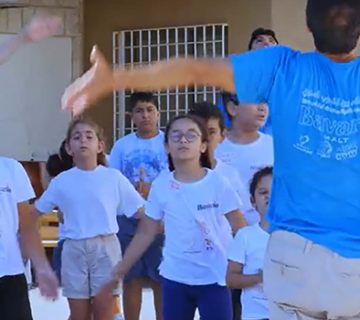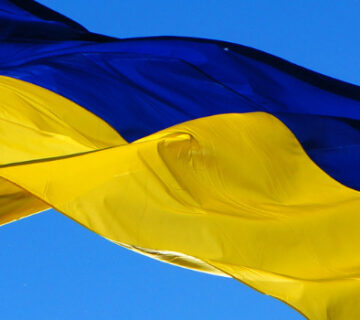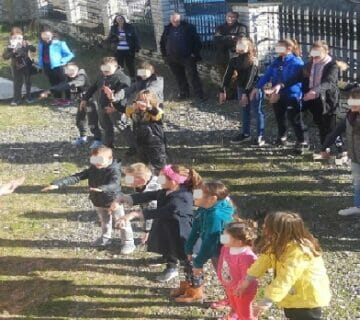 Ayubu, 42 years old, lives in Akum, Cameroon. His job is raffia bag-making, a craft which is typical of his village. “When I was told that I had AIDS, I felt like a dead man walking. I was two persons at the same time: one was already dead, and the other was a body in motion. Then I was invited to the Club. To my surprise, I saw a lot of people in my own situation, who laughed and talked as if they were normal. Little by little, I came back to life: I wasn’t two persons anymore but one. I became alive again. Even my bags are selling and I am now learning how to create ceramics.”
Ayubu, 42 years old, lives in Akum, Cameroon. His job is raffia bag-making, a craft which is typical of his village. “When I was told that I had AIDS, I felt like a dead man walking. I was two persons at the same time: one was already dead, and the other was a body in motion. Then I was invited to the Club. To my surprise, I saw a lot of people in my own situation, who laughed and talked as if they were normal. Little by little, I came back to life: I wasn’t two persons anymore but one. I became alive again. Even my bags are selling and I am now learning how to create ceramics.”
The “Club” Ayubu talks about is one of the support groups for AIDS patients, promoted by the Focolare Movement in Nigeria, Cameroon, Kenya and the Democratic Republic of Congo. This network of “Clubs” in the different districts treats each patient according to a global approach, sustaining the patient, his/her family and other people at risk. The project has been integrated with UN projects. At the XIVth World Conference on AIDS held in Barcelona last July 7-12,2002, the results obtained by the project were presented, namely, the building up of diffusive, self-sufficient, low-cost social welfare networks in local communities. These results were also published in the Conference Proceedings as one of the “Interventions and programmes for improvement.”
How the idea was born – The project began in 1992 in a mission hospital in Nigeria, under the guidance of two doctors and a nun who realized that in order to control the spread of the disease and avoid marginalizing those who are afflicted, it was not sufficient to follow the hospital protocol for AIDS patients. The collaboration of health care personnel, family members, schoolteachers, local authorities and traditional healers was necessary to help create a sense of brotherhood and acceptance around HIV-positive persons.
Here is the experience of one of the pioneers, Spanish doctor Fernando Rico Gonzales: “For various reasons, in particular due to lack of formation and information, HIV-positive persons often refuse to accept their diagnosis. The deep and hopeless suffering I saw in many of these people led me to talk about this right away with my patients and ask them if they would like to meet with others like them, so that they can help one another with their common problems.”
From Nigeria, the experience was repeated in other African countries. Today, around a hundred people are linked to the club of Akum and Bali in Cameroon, including about 20 children. Patients in more serious condition are cared for and visited in their homes.
These “clubs” are supported by the NGO “Azione per un mondo unito” (AMU) (tr. “Action for a United world = AMU). To date, €16.048,24 have been raised. The annual budget requires approximately €18.600. Donations to AMU – Azione per un Mondo Unito may be named to the “Bamenda Project.”
from Amu Notizie issues 1/2004 – 2/2005 and 4/2005, and Living City issue 5/2005


 Italiano
Italiano Español
Español Français
Français Português
Português


